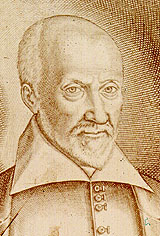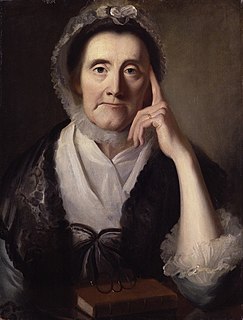A Quote by Saint Ambrose
A good youth ought to have a fear of God, to be subject to his parents, to give honor to his elders, to preserve his purity; he ought not to despise humility, but should love forbearance and modesty. All these are an ornament to youthful years.
Related Quotes
Once in his life, a man ought to concentrate his mind upon the remembered earth, I believe. He ought to give himself up to a particular landscape in his experience, to look at it from as many angles as he can, to wonder about it, to dwell upon it. He ought to imagine that he touches it with his hands at every season and listens to the sounds that are made upon it. He ought to imagine the creatures there and all the faintest motions of the wind. He ought to recollect the glare of noon and all the colors of the dawn and dusk.
He that boasts of his ancestors confesses that he has no virtue of his own. No person ever lived for our honor; nor ought that to be reputed ours, which was long before we had a being; for what advantage can it be to a blind man to know that his parents had good eyes? Does he see one whit the better?
In his book Stand Ye In Holy Places, President Harold B. Lee wrote that one is converted when his eyes see what he ought to see, his ears hear what he ought to hear and his heart understands what he ought to understand. "And what he ought to see, hear and understand is truth-eternal truth-and then practice it. That is conversion," he wrote.
I felt that no boy should have to depend either for his leg or his life upon the ability of his parents to raise enough money to bring a first-class surgeon to his bedside. And I think it was out of this experience, not at the moment consciously, but through the years, I came to believe that health services ought not to have a price tag on them, and that people should be able to get whatever health services they require irrespective of their individual capacity to pay.
Writer Somerset Maugham, after his parents deaths, spent a few stultifying years in his uncle's vicarage. Later, in his teens at a boarding-school, having lost his belief in the existence of God said: "The whole horrible structure, based not on the love of God, but on the fear of hell, tumbled down like a house of cards."
The effect of our knowledge rather ought to be, first, to teach us reverence and fear; and, secondly, to induce us, under its guidance and teaching, to ask every good thing from [God], and, when it is received, ascribe it to him. For how can the idea of God enter your mind without instantly giving rise to the thought, that since you are his workmanship, you are bound, by the very law of creation, to submit to his authority?-\-\that your life is due to him?-\-\that whatever you do ought to have reference to him.
Therefore the good man ought to be a lover of self, since he will then both benefit himself by acting nobly and aid his fellows; but the bad man ought not to be a lover of self, since he will follow his base passions, and so injure both himself and his neighbors. With the bad man therefore, what he does is not in accord with what he ought to do, but the good man does what he ought, since intelligence always chooses for itself that which is best, and the good man obeys his intelligence.
The Bible was written between 3,000 and 2,000 years ago, and it's filled with the knowledge that people had in that period of time, some of which you and I rejected long ago. The Bible says that women are property, that homosexuals ought to be put to death, that anybody who worships a false God ought to be executed, that a child that talks back to his parents ought to be stoned at the gates of the city. Those ideas are absurd.
Let no one imagine that he will lose anything of human dignity by this voluntary sell-out of his all to his God. He does not by this degrade himself as a man; rather he finds his right place of high honor as one made in the image of his Creator. His deep disgrace lay in his moral derangement, his unnatural usurpation of the place of God. His honor will be proved by restoring again that stolen throne. In exalting God over all, he finds his own highest honor upheld.
A youth, when at home, should be filial and, abroad, respectful to his elders. He should be earnest and truthful. He should overflow in love to all and cultivate the friendship of the good. When he has time and opportunity, after the performance of these things, he should employ them in polite studies.
The average man votes below himself; he votes with half a mind or a hundredth part of one. A man ought to vote with the whole of himself, as he worships or gets married. A man ought to vote with his head and heart, his soul and stomach, his eye for faces and his ear for music; also (when sufficiently provoked) with his hands and feet. If he has ever seen a fine sunset, the crimson color of it should creep into his vote. The question is not so much whether only a minority of the electorate votes. The point is that only a minority of the voter votes.









































